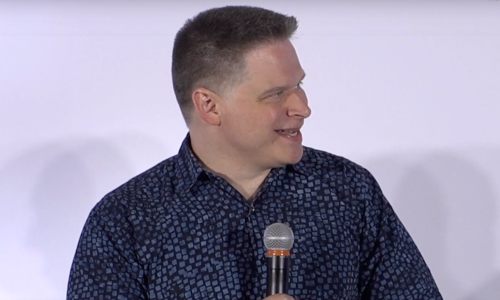As consumer demand for smart home technology continues to explode, home buyers young and old now expect new homes to be smart. They are also willing to pay significantly more for new build homes with pre-installed smart home systems, which represents a massive growth opportunity for home builders and pro installers alike. During the company’s CEDIA Expo TechTalk, Brilliant CEO Aaron Emigh, alongside David Berman, President, ESD Technologies, and Brandon Tatta, division manager at Graham Hart Home Builder, delved further into these topics.
The first challenge integrators face when approaching a builder is getting them to stop thinking of smart technology as an option (an add-on that can be almost anything), and instead think of these products as standards (things all homes should be built with).
So how to integrators break through this first barrier? Emigh says integrators should clarify that these technologies are inexpensive and that builders won’t need huge rooms of servers to power these items.
“On the consumer side, there’s more awareness of and demand for smart technology,” says Emigh, suggesting that scaling up the amount of technology included in a home can be a good thing for both integrators and builders due to the large amount of consumer interest these products now have.
He also says it is important to clarify that, to a builder, a smart home should not be seen as a “dumb home with some smart stuff in it,” and that builders should be assured that selling a smart home helps utilize the existing form factors (like gang boxes) already built into a home. These smart technologies are also less obtrusive than a lot of standalone smart home products.
Integrator Support is Important
The other main thing for integrators to bring up when approaching a builder is how they can support builders if issues occur. When smart devices are added to a home, integrators don’t just install the product and walk away money-in-hand. Instead, a business relationship is forged, where the integrator helps service the technology side of things, and the builder creates the foundation where these products are placed.
Once these first few barriers are broken, the benefits of the technology become apparent. “[Brilliant is] one of those platforms that every customer and house would benefit from. It would automate the majority of what they use and give them an ecosystem and a place to play,” says Berman. There’s no better selling point than that.







